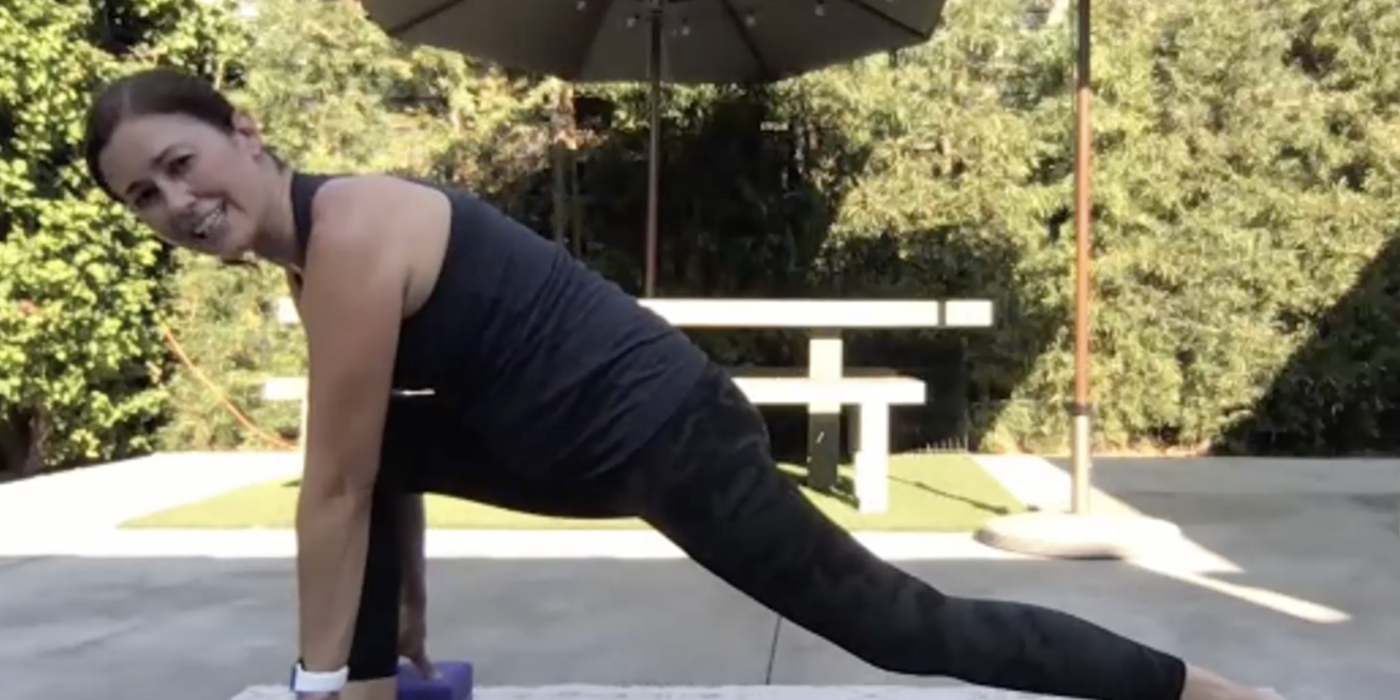
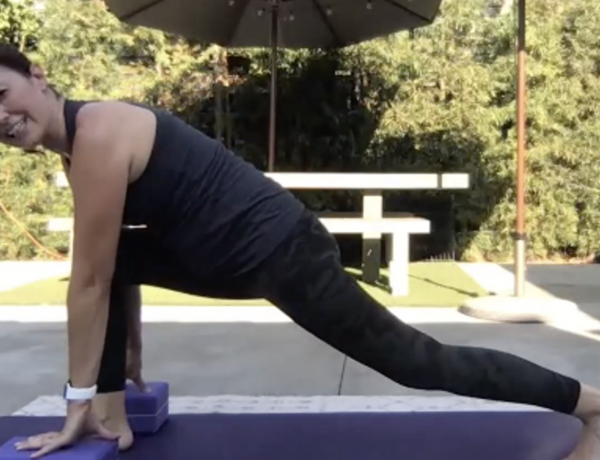
PCC Faculty Kick It Up a Notch for Remote Learning
PCC Faculty Kick It Up a Notch for Remote Learning
Flex Day for the Spring 2020 semester was a departure from the traditional in-person breakout sessions and addresses from the various shared governance groups. On March 12, 2020, faculty spent their day embracing the reality of remote learning in the face of COVID-19. The transition has not been easy, but some faculty went above and beyond during Spring 2020. Here are three examples of faculty who went the extra mile in the name of remote learning.
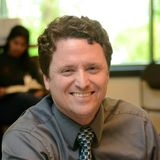 Dustin Hanvey – English
Dustin Hanvey – English
PCC English Professor Dustin Hanvey believes in the power of human connection.
Of course, the pandemic has limited that in many ways, especially for college instructors and their students.
“I was nervous about teaching online,” Dustin said. “Some students choose not to be on video during our classes, and that bothered me at first. I’m in the humanities. Having that face-to-face contact with people is so important.”
But not only has Dustin been amazed by the response of his students in the transition to remote learning, he’s come to understand something essential about the nature of education.
“Almost everyone is showing up to our Zoom meetings and participating,” he said. “We’ve been doing some significant community-building in our classes, and what I’m seeing and hearing from my students—and from my own daughters who are still in high school—is that they miss being in the classroom.”
There is a deeply human element in education, Dustin explained. He discussed how education is not just about acquiring new knowledge; it is about socializing, experiencing, connecting.
“Despite these strange and unfortunate times, we’re succeeding here,” he said. “My students are fantastic. They’ve been through hell recently. They’ve lost people because of this virus, as have I. And on top of our course content, we talk about that.”
“I was wrong that community can’t be built online,” Dustin added. “It definitely can. That personal connection is so important, and my students are very grateful to have that weekly point of contact with their classmates.”
Dave Tull & Zac Matthews – Performing Arts
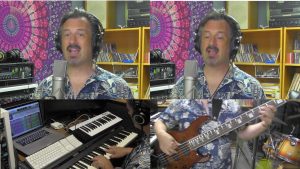 Between them, Dave Tull and Zac Matthews have close to 100 students in their music classes this semester, all of which are being taught online.
Between them, Dave Tull and Zac Matthews have close to 100 students in their music classes this semester, all of which are being taught online.
“When the pandemic first hit, we scrambled to find resources so our students could stay in school and continue making music,” said Zac, Performing and Communication Arts Instructor. “The entire department was asking: how do we reinvent this program so students can do work from their homes, from their bedrooms, and still have their education be meaningful?”
Though it was challenging at first, Dave and Zac have since learned the value of teaching music online.
For Dave, one of the department’s adjunct faculty, it was just like playing jazz.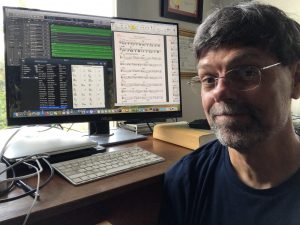
“As jazz musicians, you have to constantly adapt and react to what’s going on,” he explained. “There are obviously things you can’t manufacture online. You can’t have everyone playing together on Zoom, for instance. They’re all a half second apart from each other, and there’s nothing you can do about that. But what we could do was make a recording, something everyone could contribute to in their own time.”
In the first week of Dave’s Jazz Combo class, he compiled his students playing along to a computer track, and through a series of weekly rotations, the class contributed to various parts of the recording.
“Even though it’s an awkward set up,” Dave said, “it highlights how important the interaction is. Students can hear what they’re playing and respond to that. That’s the heart of what we teach: it’s about listening, reacting, being in the moment. We just have to stretch it out over several weeks.”
For Zac, it was a little like reinventing the wheel.
“As Dave was saying, jazz combo has traditionally been about side-by-side interaction,” Zac said. “But we just can’t do that right now. So we had to come up with these other skills we can teach. And the great news is these skills are incredibly valuable!”
In a music class where everything is recorded, students can upload video performances. Their classmates and instructors can then focus in on particular sections, leave comments, discuss arrangements, and analyze what’s going on with individual performances.
“In some ways, it becomes even more interactive than when we’re in a classroom together,” Zac said. “Our students obviously aren’t going to be focused on getting gigs and performing in concerts and touring right now. But they can absolutely learn how to make recordings, release singles and EPs and albums, and learn how to promote their music in the digital age. And they’re creating some amazing stuff!”
And although the process of teaching music online is complicated and time-consuming, both Dave and Zac share each other’s passion for the art.
“The truth is, we love the music we play,” Dave said. “Almost everyone in the PCC music department is a musician first—we’re sharing our skills, we’re sharing our passion, and we want our students to have the same enthusiasm for music that we do. Persevering through these crazy times is the underlying message I’m showing to my students: it’s worth it.”
Patty Bellali – Kinesiology
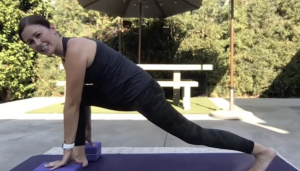 Connection. This is the thing kinesiology instructor Patty Bellali wants her students to embrace, and it is the underlying philosophy of her yoga classes at PCC.
Connection. This is the thing kinesiology instructor Patty Bellali wants her students to embrace, and it is the underlying philosophy of her yoga classes at PCC.
“Yoga is more than just moving the body around,” she explained. “It’s about connecting to your emotions; it’s about gaining perspective; it’s a lifestyle that gives people the tools they need to cope and manage with our ever-changing and sometimes stressful lives.”
This is especially true during widespread protests, smoke-billowing wildfires, political unrest, and the COVID-19 pandemic.
“I challenge my students to sit with their discomfort,” Patty said. “Oftentimes, we feel an emotion that we don’t like and we run from it, because we’re afraid of it. But it’s important to explore those things that make us uncomfortable and understand where that discomfort comes from.”
Since March, Patty has been creating yoga videos not just for her students but for PCC faculty and staff as a way to provide physical and mental health resources to the campus community.
“Right now, I teach beginning, intermediate, and advanced yoga,” she said. “I log on twice a week and take students through a one-and-a-half-hour practice that includes various stress-relieving stretches and exercises, along with meditation.”
While these classes would ideally be face-to-face, Patty has embraced the change from in-person to remote learning.
“I’m constantly asking myself: how can I make these online classes relevant, not just in terms of the pandemic, but with everything else that seems to be going on in the world right now,” she said. “The thing about yoga is that it’s something to be practiced and cultivated over time; it trains the body and the mind to relax, to accept impermanence, to connect with others.”
In the case of Patty’s students, that connection has been so important.
“In addition to practicing yoga, we talk about real things: stressful feelings, current affairs, how we’re doing,” she said. “I’ve learned so much from my students this semester. They are so open and willing to share; they’re looking for a platform where they can share their experience with others.”